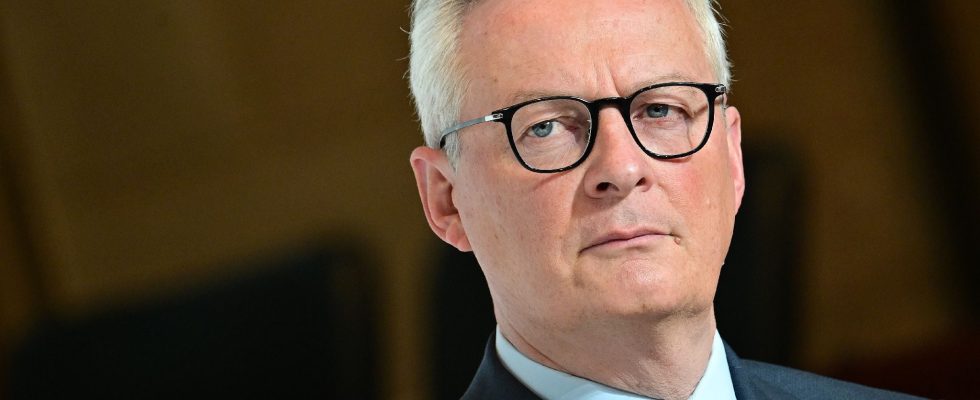Optimism in politics often turns out to be perilous and can sometimes come at a cost. For 2024, Bercy is counting on growth of 1.4%, after 1% estimated for 2023. A forecast written in stone in the next finance bill. However, an increase in GDP leads to additional tax revenue. The state of our public finances is therefore strongly correlated to the good health of our economy. Despite the absence – promised – of tax increases, Minister Bruno Le Maire and his teams anticipate the recording of an additional 17 billion euros in state coffers, via VAT, corporate tax or even income tax.
OECD, INSEE, OFCE…
But now, the scenario imagined by Bercy is in trouble. Economists, first of all, unlike the executive, opt for caution or even… pessimism. The French Observatory of Economic Conditions forecasts growth of 0.8% next year. A projection very close to that of the Banque de France (0.9%) and identical to that of the OECD. The latest blow to date, the first highly anticipated forecasts from INSEE published today: the statistics institute estimates that the increase in GDP will only be 0.2% in the first quarter of next year and as much on the second, nothing to reassure in the corridors of the Ministry of the Economy. Only the International Monetary Fund still seems to side with the government (+1.3% expected in 2024).
However, in the coming months we will have to examine a determining factor: consumption. The engine of growth – more than 50% of GDP – it has been slowing down since Covid. The French actually prefer to save rather than spend their money. Another stone in the government’s shoes: interest rates. For now, the European Central Bank is banking on the status quo by extending the pause in its monetary policy, while a reduction is not expected before summer at the earliest. Meanwhile, the impact of the latest rate hikes on the real economy is yet to come. So many questions which should make Bercy doubt.
